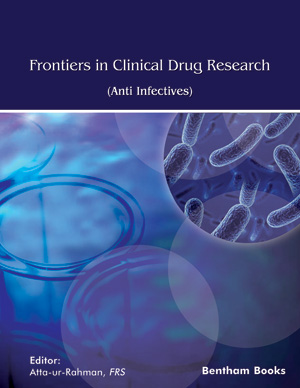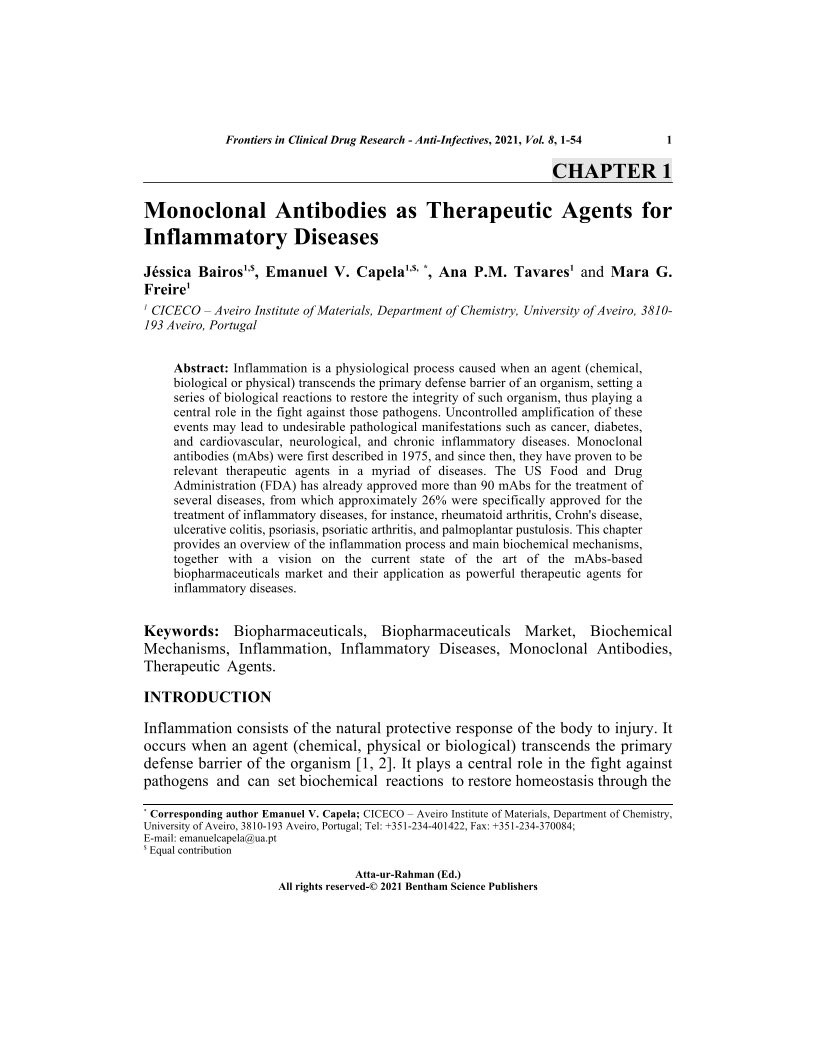Monoclonal Antibodies as Therapeutic Agents for Inflammatory Diseases

- Authors: Jéssica Bairos1, Emanuel V. Capela2, Ana P.M. Tavares3, Mara G. Freire4
-
View Affiliations Hide Affiliations1 CICECO Aveiro Institute of Materials, Department of Chemistry, University of Aveiro, 3810 193 Aveiro, Portugal 2 CICECO Aveiro Institute of Materials, Department of Chemistry, University of Aveiro, 3810- 193 Aveiro, Portugal 3 CICECO Aveiro Institute of Materials, Department of Chemistry, University of Aveiro, 3810- 193 Aveiro, Portugal 4 CICECO Aveiro Institute of Materials, Department of Chemistry, University of Aveiro, 3810- 193 Aveiro, Portugal
- Source: Frontiers in Clinical Drug Research - Anti Infectives: Volume 8 , pp 1-54
- Publication Date: November 2021
- Language: English
Monoclonal Antibodies as Therapeutic Agents for Inflammatory Diseases, Page 1 of 1
< Previous page | Next page > /docserver/preview/fulltext/9789815039412/chapter-1-1.gif
Inflammation is a physiological process caused when an agent (chemical, biological or physical) transcends the primary defense barrier of an organism, setting a series of biological reactions to restore the integrity of such organism, thus playing a central role in the fight against those pathogens. Uncontrolled amplification of these events may lead to undesirable pathological manifestations such as cancer, diabetes, and cardiovascular, neurological, and chronic inflammatory diseases. Monoclonal antibodies (mAbs) were first described in 1975, and since then, they have proven to be relevant therapeutic agents in a myriad of diseases. The US Food and Drug Administration (FDA) has already approved more than 90 mAbs for the treatment of several diseases, from which approximately 26% were specifically approved for the treatment of inflammatory diseases, for instance, rheumatoid arthritis, Crohn's disease, ulcerative colitis, psoriasis, psoriatic arthritis, and palmoplantar pustulosis. This chapter provides an overview of the inflammation process and main biochemical mechanisms, together with a vision on the current state of the art of the mAbs-based biopharmaceuticals market and their application as powerful therapeutic agents for inflammatory diseases.
-
From This Site
/content/books/9789815039412.chapter-1dcterms_subject,pub_keyword-contentType:Journal -contentType:Figure -contentType:Table -contentType:SupplementaryData105

